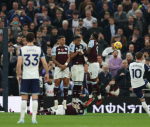You are here
Will Trump be disqualified?
Feb 08,2024 - Last updated at Feb 08,2024
CHICAGO — This week, the US Supreme Court will hear oral arguments on Donald Trump’s appeal of the Colorado Supreme Court’s decision disqualifying him from the ballot for the 2024 presidential election. The Colorado court based its decision on Section 3 of the US Constitution’s Fourteenth Amendment, which bars from federal and state office anyone who, having sworn to uphold the Constitution, engages in insurrection. Nearly everyone on the left and right has already decided that the ruling is obviously right or obviously wrong, respectively. But the truth is that both the law and the facts are unclear, which means the Supreme Court justices’ political acumen will be tested like never before.
Start with the question of whether Trump engaged in “insurrection”, the resonant but undefined core of Section 3. One view is that he did so by orchestrating a mob attack on the Capitol on January 6, 2021, while Congress was trying to certify the election results. Another is that Trump gave aid and comfort to the insurrection by failing to call in the troops to quell it, and by waiting hours before telling his supporters to go home.
But it is not clear that he called for violence (“fight like hell” is an all-too-trite expression in the American vernacular), and it is unlikely that he expected the Capitol police to be overrun. Moreover, the president’s executive power is normally understood to be discretionary. It would be very unusual for a court to find that presidential inaction, as opposed to action, violated the constitution.
The trial court in the Colorado case noted that Section 3 does not explicitly apply to the president. It applies, rather, to electors of the president, suggesting that the drafters trusted the electors to choose the president even if they did not always trust the people to choose the electors, a view shared by America’s founders. Some critics have ridiculed this argument, noting that Section 3 also applies to “officers of the United States”, which surely describes the president. And yet, other clauses of the Constitution distinguish the president from officers of the US, as have judicial opinions over the years.
Faced with these and similar conflicting arguments that turn on the vagaries of language and understandings lost to history, the Supreme Court cannot plausibly resolve the case by the sort of narrow legalistic analysis that courts often use. As they have in nearly every major case, the justices will have to account for larger problems of constitutionalism, politics and the public good, giving careful thought to the possibility of a popular backlash at a time when the Court’s public support has waned.
As he has done in past controversial cases, Chief Justice John Roberts will strive for a unanimous opinion to shield the Court from charges of partisanship. Since the usual way to achieve a unanimous opinion is to rule on the narrowest grounds possible, one option is to hold that the president is not an “officer of the United States” for the purposes of Section 3. That would preserve Section 3 for most other government officials, and it would enable the Court to avoid taking a position on the explosive political question of whether Trump engaged in insurrection.
Alternatively, the Court could follow the 1869 Griffin’s Case and hold that Section 3 authorises Congress to disqualify government officials, but does not mandate it on its own. In 1870, Congress implicitly accepted that theory by imposing disqualification only on officials who interfered with Reconstruction. But it seems unlikely that the three liberal justices would go along with this. So, Roberts might conceivably try to knit together a unanimous ruling against Trump.
A narrow ruling against Trump could hold that the federal courts should not disrupt states’ handling of ballot access where state courts provide good-faith interpretations of the US Constitution. That could well kill off Trump’s campaign by embroiling it in litigation in 50 states, which could result in his removal from the ballot in key jurisdictions.
But would Republican-appointed justices rule against Trump? It is possible. After all, they are establishment figures, not populist rebels, and they have not shown much loyalty to Trump in cases where he tried to advance his personal and political interests, as opposed to broadly shared Republican policies. Trump characteristically denounced the Court as “nothing more than a political body” after one of the rulings against him. The justices surely would be delighted to get him out of their hair.
The conservative justices also might accept the conventional wisdom that a Republican other than Trump stands the best chance of defeating Joe Biden. Ruling against Trump thus would secure a more respectable candidate and put the Court on the side of a majority of Americans who think Trump should be disqualified. Moreover, the Court’s conservatives could still bank on goodwill among some Republicans for their elimination in 2022 of the federal right to abortion.
But abortion notwithstanding, right-wing rabble-rousers would have a field day attacking the Court, which may find itself without allies on the right or the left. So uncertain would be the consequences, which could deepen polarisation and even spark political violence, that it is hard to imagine the justices coming together for a unanimous opinion.
One possible way forward, then, would be for the Court to resolve some of the legal issues, like the correct definition of “insurrection”, and appoint a special master or commission to engage in expedited fact finding, with a quick appeal back to the Court after the facts have been unearthed. While the Colorado trial court did hold a brief hearing to determine the facts, its account of its fact-finding suggests that only a skimpy record was developed. A hearing before a commission consisting of senior or retired federal judges would allow the public to learn what happened on January 6 in a less partisan setting than the congressional January 6 Commission.
This process would echo the Electoral Commission of 1877, which resolved the contested election between Rutherford B. Hayes and Samuel Tilden. That commission was appointed by Congress, not the Supreme Court, but the Court has appointed commissions and special masters before (albeit in different circumstances). There is no doubt that it could find the authority to do so again.
Americans do not trust government much anymore, but they do harbor a residual trust in the judiciary, with its intimidating forms and procedures. A regular trial (ideally televised, though that, too, would require a change in policy) could finally offer a clear path forward.
Eric Posner, a professor at the University of Chicago Law School, is the author of “How Antitrust Failed Workers” (Oxford University Press, 2021). Copyright: Project Syndicate, 2024. www.project-syndicate.org













Add new comment